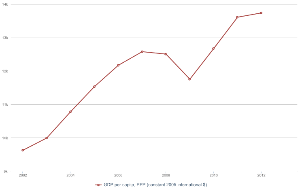Welfare Policies are the Key to the AKP’s Electoral Successes
By Kemal Kaya (vol. 7, no. 8 of the Turkey Analyst)
Redistribution through social services and welfare programs is a crucial source of electoral strength for the Justice and Development Party (AKP). However, this model for political success also strains the relation between the AKP and those societal segments that support the welfare programs with their taxes. The results of the March 30 elections demonstrate that support for the AKP is declining among the newly urbanized, conservative middle class, and show that the party faces a new challenge, not unlike the one that has been faced by European social democratic parties in government.

The Repercussions of the AKP's Local Election Victory
By Gareth Jenkins (vol. 7, no. 7 of the Turkey Analyst)
On March 30, 2014, the ruling Justice and Development Party (AKP) secured a resounding victory in the Turkish local elections. Prime Minister Recep Tayyip Erdogan now appears set to use the party’s success as platform for his own bid for the presidency in August 2014. But, rather than bringing stability, the AKP’s local election victory and Erdogan’s presidential ambitions are likely to intensify the political turmoil in the country.





